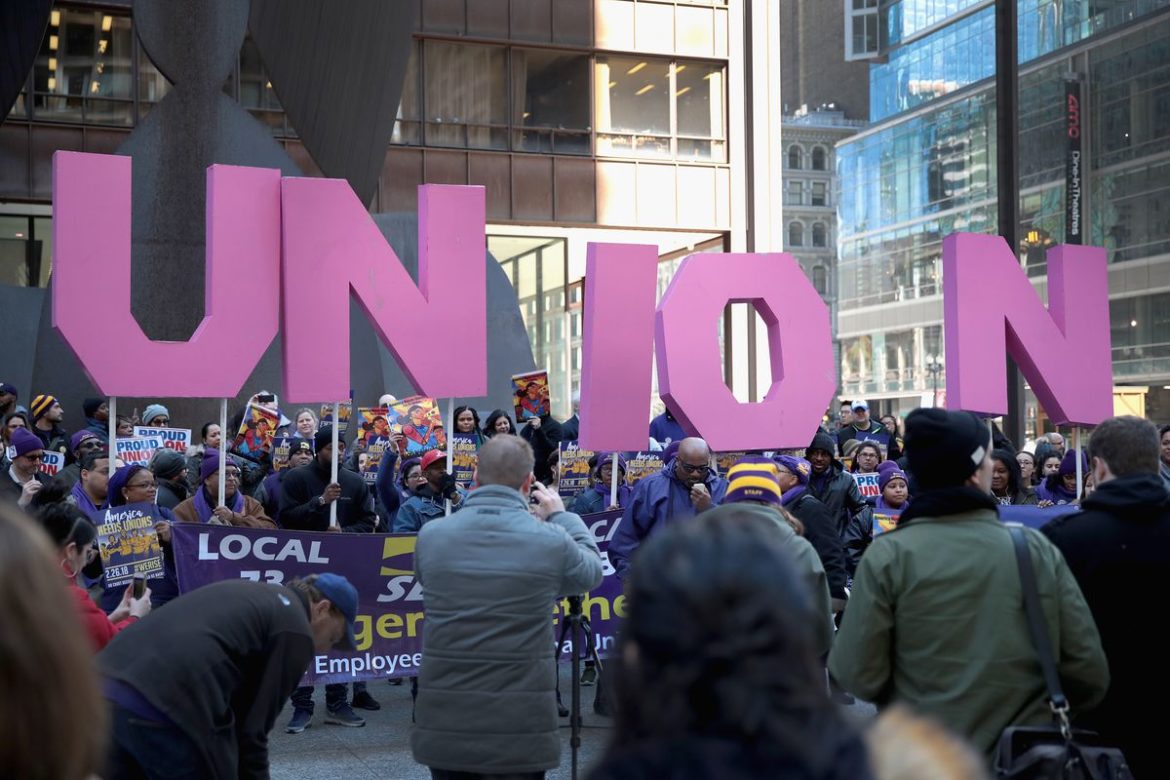Though long anticipated, the Supreme Court’s decision to strike down agency fees is no less monumental in its impact on political life in the US and the State of Maryland. With agency fees struck down, the left loses one its main sources of funds, the unfair taxing of non-members, particularly by government employee unions.
Jul 2, 2018 – Supreme Court Labor Decision Wasn’t Just A Loss For Unions – NYT
Jun 28, 2018 – Why Janus Cuts So Deep: Workers Must Opt In To Pay Union Fees – Exam
____________________________
Supreme Court Rules Against Public Unions Collecting Fees From Nonmembers
The Washington Post
Conservatives on the Supreme Court said Wednesday that it was unconstitutional to allow public employee unions to require collective bargaining fees from workers who choose not to join the union, a major blow for the U.S. labor movement.
The court in a 5-to-4 decision overturned a 40-year-old precedent and said that compelling such fees was a violation of workers’ free speech rights. The rule could force the workers to give financial support to public policy positions they oppose, the court said.
“States and public-sector unions may no longer extract agency fees from nonconsenting employees,” Justice Samuel A. Alito Jr. wrote for the majority. “This procedure violates the First Amendment and cannot continue.”
He was joined by Chief Justice John G. Roberts Jr. and Justices Anthony M. Kennedy, Clarence Thomas and Neil M. Gorsuch.
Justice Elena Kagan wrote for the dissenting liberals: “The First Amendment was meant for better things. It was meant not to undermine but to protect democratic governance — including over the role of public-sector unions.”
It was a devastating, if not unexpected, loss for public employee unions, the most vital component of organized labor and a major player in Democratic Party politics. It capped a years-long effort by conservative legal activists to forbid states from authorizing the fees.
The decision came on the term’s final day and was another example of a conservative majority refortified by President Trump’s selection of Gorsuch to fill the seat of the late Justice Antonin Scalia.
Trump immediately tweeted to put his own spin on the decision: “Supreme Court rules in favor of non-union workers who are now, as an example, able to support a candidate of his or her choice without having those who control the Union deciding for them. Big loss for the coffers of the Democrats!”
Unions were already restricted from using the dues for political purposes.
Union reaction was not surprising.
“The Supreme Court’s 5-4 decision . . . abandons decades of commonsense precedent,” said AFL-CIO President Richard Trumka. He added that “it will further empower the corporate elites in their efforts to thwart the aspirations of millions of working people standing together for a better life.”
Challengers asked the court to overturn a 1977 decision, Abood v. Detroit Board of Education, that favored the unions. That ruling said states could allow public-employee unions to collect fees from nonmembers to cover the costs of workplace negotiations but not the union’s political activities.
The unions say losing fees from nonmembers would be a heavy blow because there is no incentive for workers to pay for collective-bargaining representation they could get for free. More than 20 states, including California, allow what the unions like to call “fair-share” fees.
It was the third time the Roberts court had considered overturning Abood. It stopped short the first time but made clear it was open to the argument.
It appeared the challenge would be successful the next time the issue went before the court, in January 2016. But Scalia died a month later, and the court announced that it had split 4 to 4 on the issue.
Gorsuch provided the fifth vote.
In the case argued in 2016, the Obama administration supported the unions and said the court should abide by its precedent. But the Trump administration argued in favor of challengers at oral arguments in February.
The lead plaintiff in the new case is Mark Janus, a child-support specialist at the Illinois Department of Healthcare and Family Services. The case is Janus v. AFSCME Council 31.
To read the full article click here













